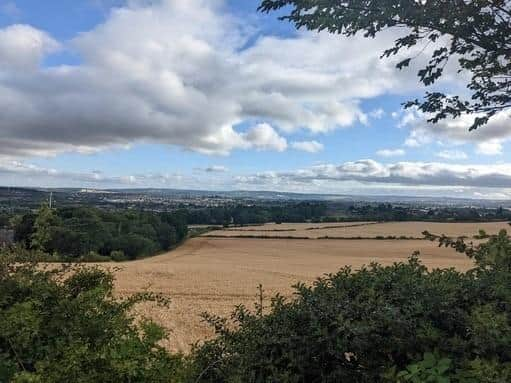Derbyshire Wildlife Trust purchases 60 acres of land for nature and local people to enjoy thanks to overwhelming support from the public
and live on Freeview channel 276
The acquisition of Wild Whittington was made possible by a blend of nature-focused investments, which included contributions from supporters of Derbyshire Wildlife Trust and The John Swire 1989 Charitable Trust, in response to the Defend Nature appeal.
The 60 acres of land connects St Bartholomew’s woods to the south and Grasscroft ancient woodlands to the north. These woods join to Unstone and then down into the valley of the River Drone. Using rewilding, the plan is to create varied habitats to bolster a vital corridor between the woodlands and support nature’s recovery in Chesterfield and the surrounding areas.
Advertisement
Hide AdAdvertisement
Hide AdMatt Buckler, Director of Natural Solutions at Derbyshire Wildlife Trust said: “We are so grateful for the incredible response we had to our appeal to secure this land from our members, the public, and our generous major donors.


“Here in Derbyshire, we want to take action to restore nature now. Quite simply, turning land over to rewilding projects is one of the most effective ways to get resilient nature back in people’s lives, and it would not be possible without the support we receive.
“The purchase is not only good news for wildlife, its great news for local residents and visitors to the area too. We can't wait to turn this piece of land into an oasis for wildlife for future generations to enjoy.”
The completion of the purchase was made possible thanks to funds from four private lenders.
Advertisement
Hide AdAdvertisement
Hide AdBen Carter, Director of Development at Derbyshire Wildlife Trust explains: “In Derbyshire, we have stepped up our ambition for nature's recovery, to tackle nature and climate emergencies, by acquiring and restoring land. Charities like us largely rely on grants, charitable trusts and donations from the public to buy land, and whilst these remain vitally important to the work that we do, cashflow when land comes up for sale is often a major barrier to us being able to respond to opportunistic land purchases.
“That's where philanthropic loans come in. They enable environmental charities to seize land purchase and restoration opportunities when they arise.”